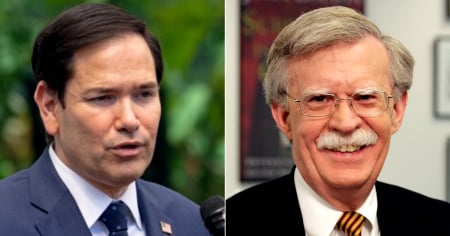In yet another step towards solidifying his dictatorship in Nicaragua, the regime of Daniel Ortega appointed his wife, the co-president Rosario Murillo, as the new supreme chief of the Army, a position she now shares with the dictator himself.
The designation was formalized through a reform to the Code of Organization, Jurisdiction, and Military Social Security, proposed by the Executive and unanimously and urgently approved by the National Assembly, which has a majority of official party members.
The measure further reinforces the presidential couple's control over state institutions, including the Armed Forces. “The Army will be subordinate to the civilian authority exercised by the Presidency of the Republic as the Supreme Command of the Nicaraguan Army,” states the text cited by the agency EFE.
Since February 19, following a constitutional reform, Nicaragua officially has a co-presidency composed of Ortega and Murillo, allowing them to jointly exercise the powers of the Executive Branch.
Military power concentrated in the presidential couple
With the reform, the Presidency —in the hands of Ortega and Murillo— will be able to order military operations in the event of external aggression; allocate the Army to support the National Police in tasks of "internal stability"; appoint or remove the Commander-in-Chief of the Army, and order military mobilization in the case of a national emergency.
Also, powers are granted to remove high-ranking military officials who disobey the orders of the Presidency, which consolidates a vertical and personalized control over the country's military structure. Ultimately, a dictatorship.
A militarization of civil power
Analysts and human rights organizations have warned that these reforms deepen the authoritarian nature of the regime, by completely subordinating the military to the family core that holds power. This measure has been viewed as an attempt to further shield the government from any potential political or institutional challenges.
With this move, Ortega and Murillo extend their control over all levers of state power, in a country where opposition parties no longer function, dissent has been criminalized, and governance is through fear, repression, and the security apparatus.
Frequently asked questions about the appointment of Rosario Murillo as head of the Army in Nicaragua
Why was Rosario Murillo appointed head of the Army in Nicaragua?
Rosario Murillo was appointed head of the Army in Nicaragua as part of a reform to the Code of Organization, Jurisdiction, and Military Social Security, which was proposed by the Executive and approved by the National Assembly. This measure is seen as another step in the consolidation of the dictatorial power of Daniel Ortega and his wife, extending their control over state institutions, including the Army.
What does the co-presidency of Daniel Ortega and Rosario Murillo in Nicaragua imply?
The co-presidency of Daniel Ortega and Rosario Murillo, established after a constitutional reform, allows both to officially share the powers of the Executive Branch in Nicaragua. This reinforces the absolute control that the presidential couple exerts over the powers of the State, eliminating any independence among them and consolidating an authoritarian regime.
What criticisms has the reform that appoints Murillo as chief of the Army received?
Analysts and human rights organizations have criticized the reform for deepening the authoritarian nature of Ortega's regime. It is warned that it completely subordinates the Army to the ruling family, and it is seen as an attempt to further shield the government from any political or institutional challenges.
How does this measure affect political stability in Nicaragua?
The measure strengthens the presidential marriage's control over all levers of state power, which contributes to the lack of opposition parties and the criminalization of dissent in the country. This creates a climate of repression and fear, impacting political stability and deepening the social and economic crisis in Nicaragua.
Filed under:
